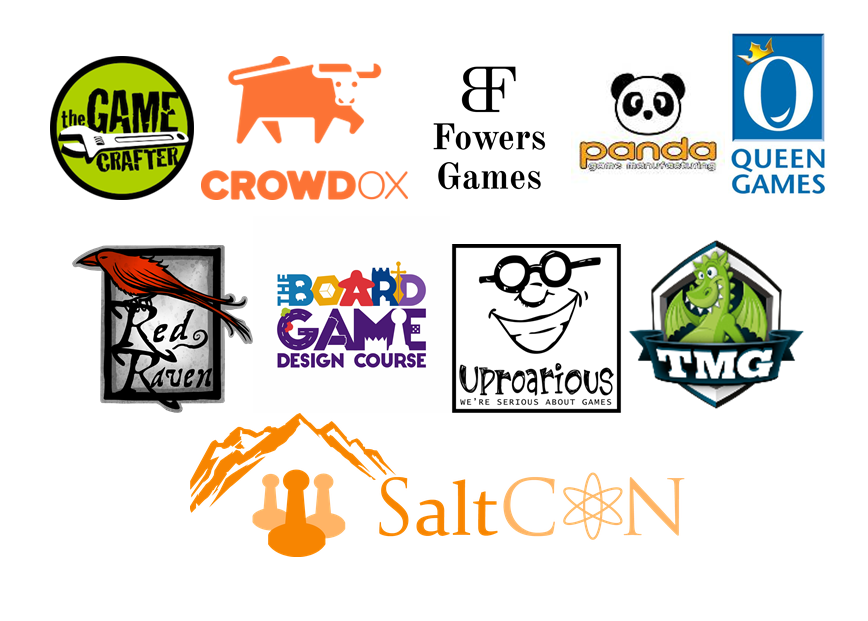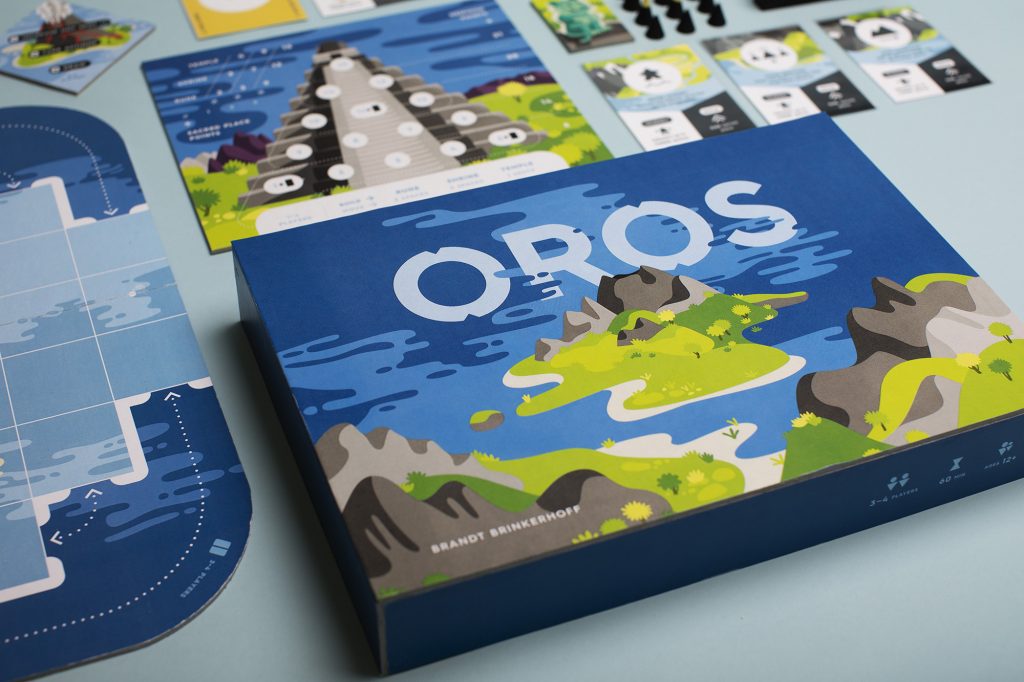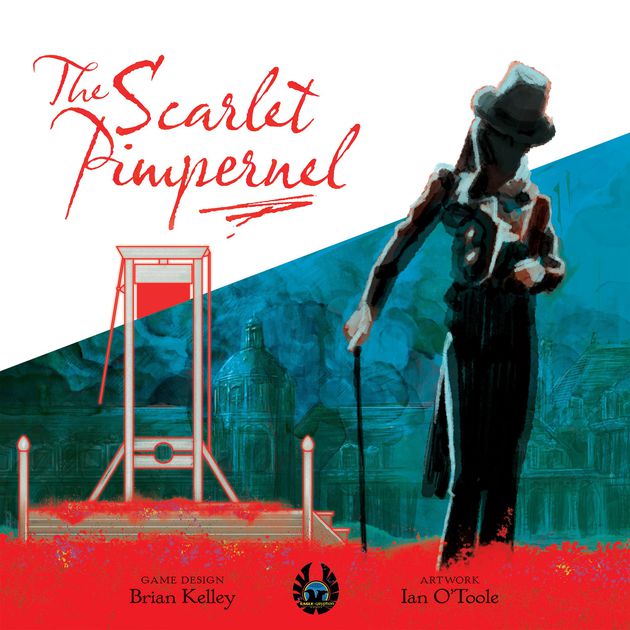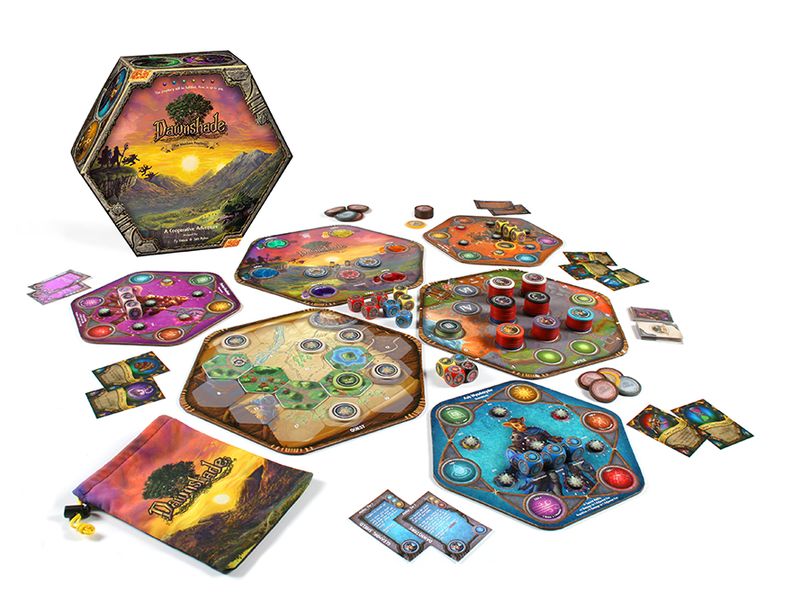Guild Update
COVID and Guild Playtest Meetings
We are not currently facilitating in-person playtest meetings. Updates on the status of these meetings will be announced vie our BGDG of Utah’s Facebook Group.
We have a new Website!
We are excited to show off the new website (http://www.bgdg.games/)! There’s still some development needed in order to get it fully up to speed but we are really excited to have it available!
This newsletter, and future ones, will be hosted on the website so new and old guild members (as well and those not in the guild) can see all the great things going on inside our guild!
Discord and the Guild
The BGDG of Utah’s Discord is a great way to get to know those in the guild and discuss all things game design! If you’ve not joined yet, we’d love to have you come and participate with us!
Chandler Copenhaver, with CrowdOX, has also started a Discord called CO-Games & Geeks that focuses on online playtesting. He’s really doing a great job in encouraging the community he’s building to try out games currently in development. Feel free to join up and add your game to the list!
Upcoming/Current Events
BGDG of Utah Summer Business Meeting
We are currently discussing whether to try and hold a virtual business meeting due to the current health crisis going on. Feel free to join the discussion on this topic via the BGDG of Utah’s Facebook Group or on our Discord.
Current Kickstarter Projects
Dawnshade
Bristol 1350
Salt and Sail
Though not a member yet I thought I’d mention Ammon Anderson’s Kickstarter Project T.A.C.O. as he’s been active on discord with us and would likely be a member if not for the COVID situation.
ProtoCON 2021
Earlier this year we created an event called ProtoCON, which was a big success! ProtoCON is a convention that focuses on tabletop games currently in development. We were able to get a sizable crowd of gamers out to play these games. We were so grateful to our many sponsors who provided support in various ways, including some incredible prizes! We are anxiously looking forward to ProtoCON 2021 and are currently making preparations for that!

If you are interested in helping out with the planning and/or volunteering for ProtoCON 2021 please email David Gonsalves @ info@protoconutah.com
Current Contests
Board Game Workshop (6/12)
Design an Expansion for Dungeon Drop (6/30)
Though the Board Game Design Lab contest is no longer accepting submissions (currently in round 2), I wanted to mention that guild member Brandt Brinkerhoff’s game, Oros, is a finalist in the contest! Judging for round 2 is community driven so please vote here! The community judging will close on June 12th.

**As a side note: Brandt’s game Oros was a finalist in the Board Game Workshop contest last year and was also an Ion Award winner this year! We are excited for Brandt and hope to show him some support in the BGDL contest!
Game Design Highlights by Skye Larsen
I distinctly remember my first “aha” moment when I realized that game design was a real job that real people did. I had just started playing Magic in high school, and then we went to my buddy’s house and played another game with card mechanics, Star Wars: Epic Duels. “Someone has to come up with all the ideas for these cards,” I thought.
When I got home, I booted up the computer and searched for any information on game design. Back then, it was shockingly hard to just google around and find game design advice, but I eventually found a column by Magic designer Mark Rosewater where he talked about how to design games.
Thankfully, it’s no longer difficult to find all sorts of game design content—from YouTube videos to forums to blog posts to podcasts. In fact, at this point the difficulty might be sifting through all that content to find what’s interesting, helpful, and relevant to your personal designs.
So when (guild member) Dustin Dowdle reached out to me about writing something design-focused for this newsletter, I felt I could provide the most useful advice by summarizing and highlighting the words of others. Today I’ll give a quick summary of two interesting design-related podcasts and wrap up with a couple links to a pair of hyper-specific articles about prototyping.
Ludology: A Study in Emma-rald
Ludology is a great podcast with a huge back catalog you can search through. The current co-hosts are Gil Hova and Emma Larkins, who generally team up to interview another game design guest. But in this episode it was Emma getting interviewed by Gil and Scott Rodgers about her game Abandon All Artichokes, published by Gamewright.
Abandon All Artichokes is a light-hearted, deck-destruction game where you collect cards with various powers in pursuit of a straightforward win condition: draw a hand with no artichokes. Since your deck is entirely artichokes to start with, the game is about using deckbuilding mechanics to prevent yourself from drawing artichokes.
Emma talks about how the name was actually the first aspect of the game—she used a creative game-design exercise to come up with a bunch of game names. (That’s an exercise I might be trying myself, soon!) She then talks about the benefits of playtesting, from helping the game be more flavorful to hunting down the more broken parts of the game. One amusing anecdote talks about an “infinite potato problem” where gamers found out they could reshuffle potatoes over and over.
One interesting aspect of the game that sets it apart from other deckbuilders is the lack of money and points. She talks about how that simplicity made game balance tricky, since the only balance levers she could pull were card abilities and not the typical levers of card cost or victory points. She also points out the pretty unique (for a deckbuilder) ability to “buy” a card from the market and use it right away, but completely fails to acknowledge that I did this in my unpublished Steel & Fortune prototype. Sigh.
A couple of the other topics brought up include the “great tin debate,” since her game is stored in a tin (like several Gamewright Games), and using Cardboard Edison to reach out to the right publishers at conventions.
The Game Design Round Table: Sen-Foong Lim Designs Edge Cases out of the Game
Like Ludology, the Game Design Round Table has also been around for several years. The current co-hosts include board game designer Dirk Knemeyer and digital game designer David Heron. The show covers both video game and board game design (including tabletop RPGs) and switches between interview-focused shows as well as “round table” discussions. This episode was an interview with board game designer Sen-Foong Lim.
As the inaugural episode of the show’s series on Design Axioms, Sen-Foong Lim had to choose an axiom that he’s learned designing many games over the years. Sen decided his axiom would be “design edge cases out of the game.” He defines edge cases as something that occurs so rarely in the game that maybe it shouldn’t be in it.
One of the primary topics in the podcast is actually the hosts pushing back on his axiom. Sen says that some games—like Magic the Gathering—are built around exploiting edge cases, and other games have a format that allows constant iteration and chances to fix the most problematic edge cases. But with the games Sen designs, he wants to focus on making a great experience for first-time players playing a single-box game.
Sen also explains how his dislike for edge cases grew out of writing rulebooks. He would spend paragraphs and even pages discussing one rule that wouldn’t even come up in the vast majority of games. He then found out that it helped streamline his designs overall and even reduced the need for some components.
Throughout the episode, Sen discusses some of the games he’s worked on, from the worker placement game Belfort (published by Utah-based Tasty Minstrel Games) to the mix-and-match mutant arena game Mutants. A couple other tangential design topics in the episode include designing IP games and the benefits of always co-designing.
Some Useful Articles to Wrap up
Prefer the written word over these newfangled podcasts? Or maybe you’re just looking for some more great content for game designers. Here are a couple great, detailed articles some designers have shared about making prototypes.
First, Mike Berg shares “How to Make a Card Game with InDesign and Data Merge.” If you’ve already sold your soul to the Adobe Creative Cloud and want to make better use of InDesign, Mike shares his method for using data merge to efficiently design and update a large set of cards using data merge.
And finally, Chris Backe provides “Tabletop Simulator: The Ultimate Guide for Absolute Beginners.” You might have heard that there’s a pandemic going around. That’s made in-person playtesting difficult (as we’ve seen in our guild). This is a wonderful, meticulous, step-by-step guide on creating digital prototypes in Tabletop Simulator.
Interviews
For this first BGDG of Utah Newsletter (at least the first in many years), I decided to include two interviews, one with Brian Kelly and the other with Jett Ryker. After reaching out to both Brian pointed out a previous interview he did that encapsulated most of what I was asking of him so I’ll include a link to that below.
Brian Kelly
Interview with Brian Kelly, designer of the game The Scarlet Pimpernel

The year is 1793. France cowers under the Reign of Terror, and not even the innocent are safe from the Committee of Public Safety and their precious guillotine. In the midst of this turmoil, one man uses courage and cunning to fight the brutality: The Scarlet Pimpernel.
Along with his League of followers, The Scarlet Pimpernel rescues the innocent from under the very noses of the Committee, leaving behind only a card showing a small pimpernel flower. The man behind the rescues, Englishman Sir Percy Blakeney, must keep his identity a secret from all but his closest associates.
In The Scarlet Pimpernel, you play as members of the league helping the Scarlet Pimpernel accomplish seven missions, rescuing the innocent from the guillotine. No mission will be as important as the last, for you save the young Dauphin, heir to the French throne, by whisking him away to Vienna.

Jett Ryker
Interview with designer Jett Ryker, designer of Dawnshade (currently on Kickstarter!)

Personal Questions
What is your backstory? Tell us about you and how you got into game design.
-I’ve been a gamer for as long as I can remember. Hero Quest and Space Hulk were my first games that I remember playing from your typical mainstream games like Risk, Clue, etc.
How were you introduced to the guild?
I made a post on KSL classifieds asking for play testers for my first game, and someone responded, telling me about the guild.
Can you describe how you approach game design, in general
-Design what you love! Don’t focus on trends, or trying to capture lightning in a bottle. Find the fun and what you love about games and start molding that creativity into something unique.
If you could pick 3 games every game designer should play, as part of a board game curriculum, which 3 games would you choose?
Ethnos. Quacks of Quedlinburg. Hero Quest.
Game Related Questions
How did you come up with the idea for Dawnshade?
The initial concept for Dawnshade came from my design partner Ty Vance. He had a great idea for the world and he wanted me to figure out how everything would play together. We’ve spent the last 2 years developing it together.

Could you elaborate on any difficulties you faced when designing your game?
Balance! Being able to blend and balance everything into a smooth experience has been by far the biggest challenge.
Did you collaborate with anyone? If so, what was that process like?
There are 4 founders of Highborne Games, each with unique talents. We seem to work best when we’re bouncing ideas off each other. It’s been very special to be apart of.
Was the guild involved in the development of your game at all?
We only took Dawnshade once in the early stages of development.
How did you decide the game was finished?
I think any creative will tell you, It’s never finished. It just gets a release date. 😉
If you’d like to shamelessly plug your game here’s your opportunity!
We’d love the local support of the guild. Simply sharing the Kickstarter on social media would be very appreciated! There are several videos on YouTube, Facebook and our website if you’d like more information. www.dawnshadegame.com
Final Wrap Up Questions
How would you suppose the guild could improve in order to help develop and support the game design process better?
It’s been a while since I’ve been to a meeting but I really liked the way it was ran. For the creators, take feedback constructively. You have to sort through the noise and doubt you’ll inevitably face in your design and find the little nuggets of feedback that will improve it. Stay open, positive and just create the experience YOU want to create.
How can people contact you if they’re interested in following you and the work you do in game design?
Facebook, Jett Ryker, Dawnshade or Email jett@highbornegames.com
I appreciate all the guild does for our community and how it continues to breed creativity. Thanks so much for your support!
